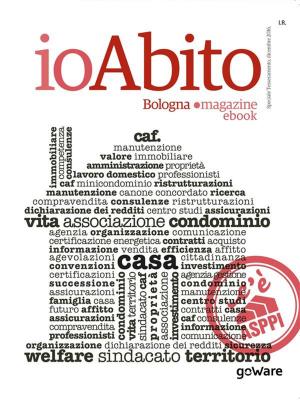| Author: | Tacito | ISBN: | 9788867974276 |
| Publisher: | goWare | Publication: | October 5, 2015 |
| Imprint: | Language: | Italian |
| Author: | Tacito |
| ISBN: | 9788867974276 |
| Publisher: | goWare |
| Publication: | October 5, 2015 |
| Imprint: | |
| Language: | Italian |
Christopher Krebs, un classicista dell’Università di Stanford, ha definito Germania di Tacito “un libro molto pericoloso” e ha dedicato alla fortuna di questo classico della storiografia latina, di appena 30 pagine, un libro di oltre 300 pagine. Lo scritto di Tacito è divenuto una miniera di tropi. Heine, Herder, Grimm se ne sono occupati ampiamente. Marinetti lo tradusse come un testo futurista e Gramsci si beffò della sua traduzione. Il nazismo ne fece la sua bibbia. Himmler ne era ossessionato al tal punto da mandare nel 1943 un commando delle SS in Italia a trafugare il manoscritto, vanamente. Il paradosso più grande è che Tacito ha scritto Germania senza aver mai conosciuto, né visitato quei luoghi. Ma lui vedeva la storia come un’astrazione.
Oggi la Germania è tornata in primo piano nella politica e nella storia europea. Il volto dei suoi leader suscita sentimenti forti. Rileggere oggi questa sintetica monografia antropologica, fuori dalle passate querelle e dagli innumerevoli tropi che l’hanno piagata, può essere un buon impiego del proprio tempo.
Oltre al testo originale, un latino che raggiunge i suoi più alti vertici di sinteticità e pregnanza, offriamo al lettore la traduzione italiana e quella inglese. Conoscere la storia è magistrale, altrimenti, come dice Hegel, chi dimentica il passato lo ripete.
Christopher Krebs, a classicist from Stanford University, defined Germania by Tacitus as “a most dangerous book” in literature. Krebs himself studied the fortune of this classic from Latin historiography in a book of over 300 pages based on a piece barely 30 pages long. Actually Germania can be read in a half an hour.
Through history Germania has been a constant source of tropes. Heine, Herder, Grimm all wrote extensively about it. Tommaso Marinetti translated it as a futurist text and Antonio Gramsci mocked his translation. Germania became a sort of bible for the Nazis. Himmler was so obsessed with it that in 1943 he dispatched a commando to Italy in an unsuccessful attempt to steal the manuscript. The superb paradox is Tacitus never stepped foot in Germany. For Tacitus, history was only an abstraction.
Once again we find Germany in the spotlight. German leaders arouse strong emotions and feelings. Reading this book today would serve us all well. It can help us to untangle the European puzzle. In any case The Germania is a classic. A first example of an anthropological monograph written in Latin at the peak of conciseness and poignancy.
This ebook contains the Latin text, English, and Italian translations linked and intertwined.
Historia magistra vitae, otherways, in Hegel’s words: “Those who forget the past are doomed to repeat it”.
Christopher Krebs, un classicista dell’Università di Stanford, ha definito Germania di Tacito “un libro molto pericoloso” e ha dedicato alla fortuna di questo classico della storiografia latina, di appena 30 pagine, un libro di oltre 300 pagine. Lo scritto di Tacito è divenuto una miniera di tropi. Heine, Herder, Grimm se ne sono occupati ampiamente. Marinetti lo tradusse come un testo futurista e Gramsci si beffò della sua traduzione. Il nazismo ne fece la sua bibbia. Himmler ne era ossessionato al tal punto da mandare nel 1943 un commando delle SS in Italia a trafugare il manoscritto, vanamente. Il paradosso più grande è che Tacito ha scritto Germania senza aver mai conosciuto, né visitato quei luoghi. Ma lui vedeva la storia come un’astrazione.
Oggi la Germania è tornata in primo piano nella politica e nella storia europea. Il volto dei suoi leader suscita sentimenti forti. Rileggere oggi questa sintetica monografia antropologica, fuori dalle passate querelle e dagli innumerevoli tropi che l’hanno piagata, può essere un buon impiego del proprio tempo.
Oltre al testo originale, un latino che raggiunge i suoi più alti vertici di sinteticità e pregnanza, offriamo al lettore la traduzione italiana e quella inglese. Conoscere la storia è magistrale, altrimenti, come dice Hegel, chi dimentica il passato lo ripete.
Christopher Krebs, a classicist from Stanford University, defined Germania by Tacitus as “a most dangerous book” in literature. Krebs himself studied the fortune of this classic from Latin historiography in a book of over 300 pages based on a piece barely 30 pages long. Actually Germania can be read in a half an hour.
Through history Germania has been a constant source of tropes. Heine, Herder, Grimm all wrote extensively about it. Tommaso Marinetti translated it as a futurist text and Antonio Gramsci mocked his translation. Germania became a sort of bible for the Nazis. Himmler was so obsessed with it that in 1943 he dispatched a commando to Italy in an unsuccessful attempt to steal the manuscript. The superb paradox is Tacitus never stepped foot in Germany. For Tacitus, history was only an abstraction.
Once again we find Germany in the spotlight. German leaders arouse strong emotions and feelings. Reading this book today would serve us all well. It can help us to untangle the European puzzle. In any case The Germania is a classic. A first example of an anthropological monograph written in Latin at the peak of conciseness and poignancy.
This ebook contains the Latin text, English, and Italian translations linked and intertwined.
Historia magistra vitae, otherways, in Hegel’s words: “Those who forget the past are doomed to repeat it”.















